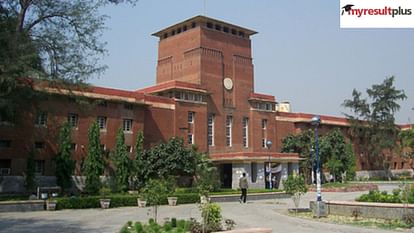
DU VC Yogesh Singh on Muhammad Iqbal
Born in 1877 in Sialkot, undivided India, Iqbal is famous for writing the song 'saare jahan se achha'. He is often credited with being the driving force behind the creation of Pakistan.
During a nearly 15-hour meeting, the university's academic council unanimously approved the VC's proposal to remove the chapter titled 'Modern Indian Political Thought' from the BA sixth-semester paper. The final decision will be made by the executive council of Delhi University (DU).
VC Singh highlighted that Iqbal wrote songs supporting the "Muslim League" and the "Pakistan Movement," emphasizing the importance of studying national heroes instead of such individuals. DU issued a press release with the VC's statement after the extensive meeting, which began on Friday at 10:30 am and concluded on Saturday at 1:20 am.
In addition to the removal of the controversial chapter, the meeting approved the syllabus for the fourth, fifth, and sixth semesters of various courses under the Undergraduate Curriculum Framework (UGCF) 2022. The philosophy department's proposed BA course, including topics like "Philosophy of Dr Ambedkar," "Philosophy of Mahatma Gandhi," and "Philosophy of Swami Vivekananda," was also considered and approved.
VC Singh requested the philosophy department to explore the possibility of including Savitribai Phule in the curriculum. Furthermore, he advised the economics department at the Delhi School of Economics to develop a paper on the economic thoughts of Dr BR Ambedkar, emphasizing the significance of teaching the Indian Economic Model, the US Model, and the European Model.
The academic council also approved three new B.Tech. programmes offered by the Faculty of Technology, starting in the academic session 2023-2024. The council granted approval to the "University of Delhi Innovation and Startup Policy" proposed by the Udmoday Foundation.
Furthermore, the establishment of a Centre for Independence and Partition Studies was approved, aiming to research unknown heroes and events of the freedom movement and study the incidents during the Partition of India. The centre will also focus on understanding the challenges faced in achieving independence and the impact of the geographical division of the country on its people.
Additionally, the academic council approved the establishment of a Tribal Studies Centre, which will conduct multidisciplinary studies on various tribes in India. The centre aims to study the social, cultural, linguistic, religious, economic, and environmental aspects of tribes, as well as the role and contribution of tribal leaders in different eras of India. It also seeks to document various folk traditions prevalent among the tribes.
The meeting concluded with the approval of the Integrated Teacher Education Programme (ITEP) course, which will be implemented as a four-year pilot project starting in the academic session 2023–24. However, six members of the academic council dissented against the resolution, expressing concerns about the lack of consultation with teachers regarding the course.
During the zero-hour, some members of the academic council raised various issues, including those related to displaced temporary and ad hoc teachers. They also protested against a Delhi University notification that required colleges to remain open from 8 am to 8 pm, without any discussion with the academic and executive councils.






